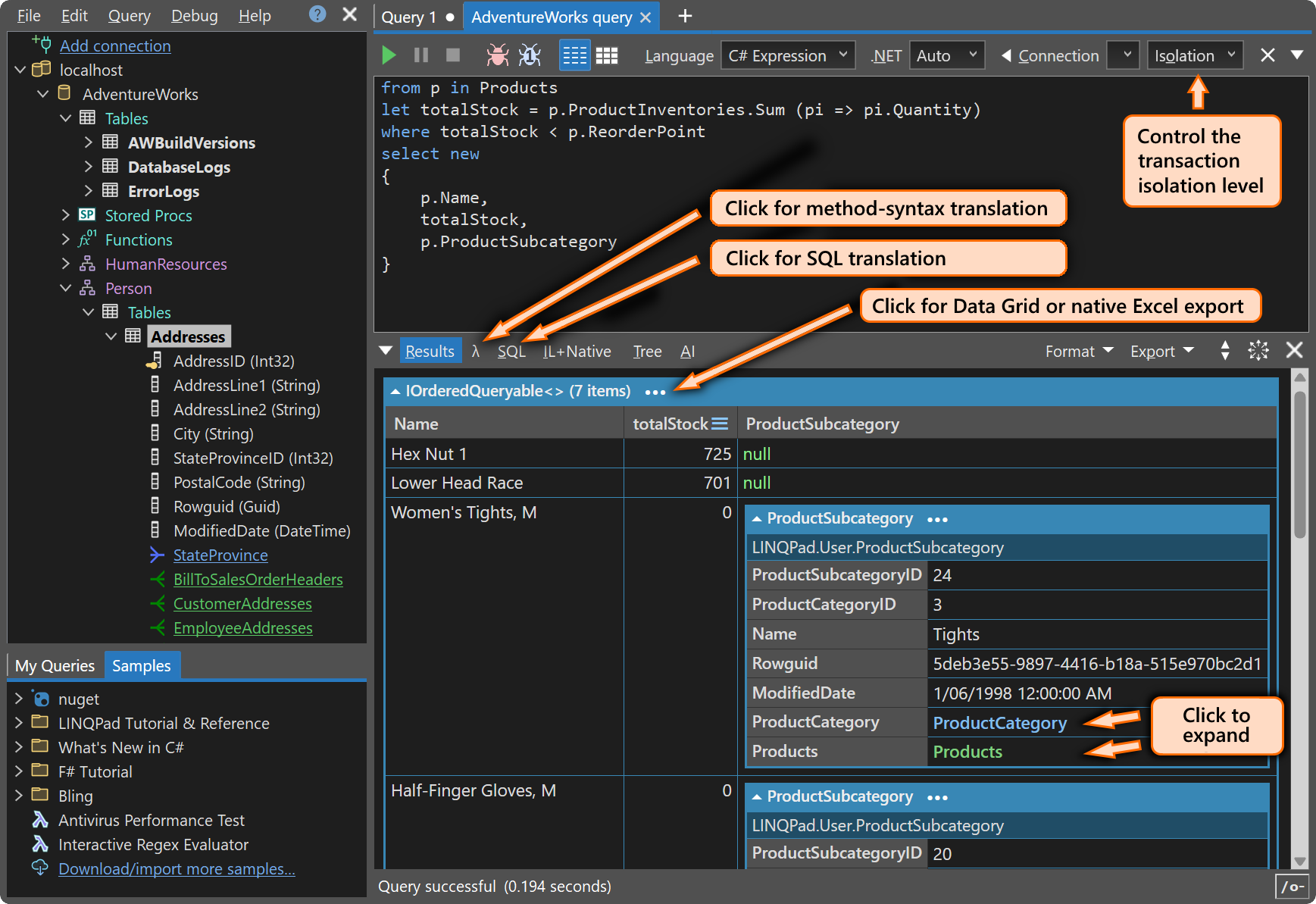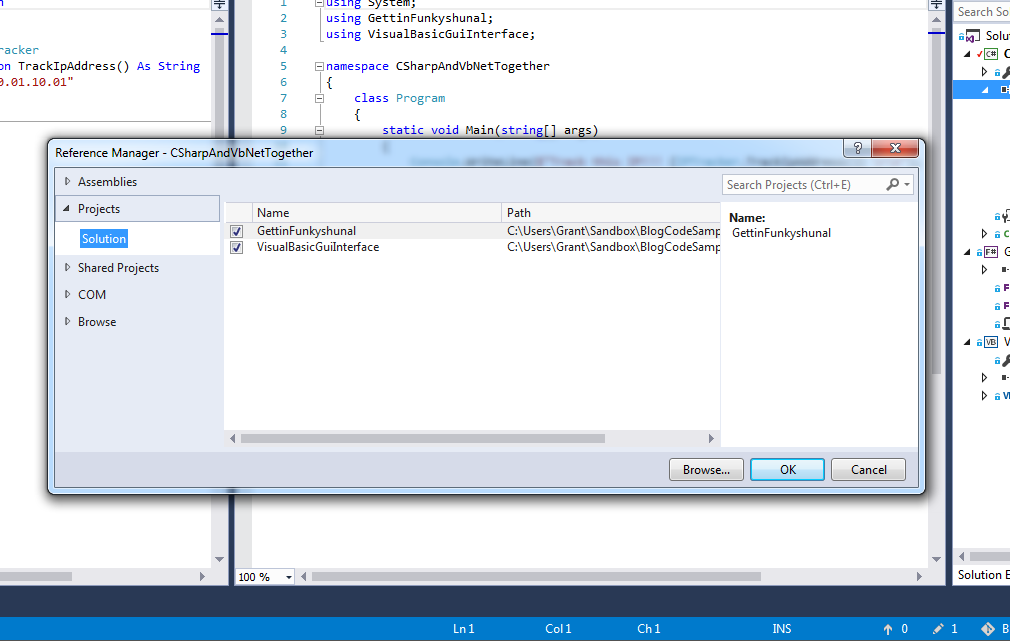

Comments are inserted into the converted code showing warnings and TODO items, with a summary report provided to make it easy to find and correct anything that needs to be manually converted (which is to be expected in any significant, real world project). On the whole, however, the projects were converted about 99% of the way and, of the ones I tested, compiled on the first try.Īfter converting a project, the tool displays the number of lines of code converted, how long it took (14 seconds for the VB Card Game Starter Kit on my machine), and a list of warnings and errors.

#Convert c to vb.net online manual#
For instance, Resource files required some manual work to get working in C# after converting from VB. I tested the product using several different starter kits and found that it did a good job overall, but there were some things it was unable to convert without some developer interaction. A simple way to test this feature is to open up one of the ASP.NET Starter Kits in VB (or VB Starter Kits) and convert it to C#. It supports converting complete VB projects (1.x or 2.0) to C#. I will switch between the two, and as you will see they are nearly mirror images of one another. This review covers two products, Instant C# and Instant VB.

Tangible Software's Instant C# and Instant VB packages provide the tools required to perform code conversions between C# and VB, whether for simple snippets or for complete projects. Utilities that can automate this work have been few and far between (one popular one can be found online at, though it is far from perfect and has no support for. For authors, trainers, and presenters, the task is even more common (and arduous), as samples developed in one language must often be converted to the other in order to maximize the reach of the training, article, book, or presentation. Whether to get an online sample working, to integrate some code developed by another team, or just to try and learn the ins and outs of the other language, converting from C# to VB and vice versa has been a common, often tedious task for many developers in the last few years. NET, the Common Language Runtime, and C#, developers with a preference for C# or Visual Basic have been faced with the task of converting source code written in one language to the other. If you encounter any problems, we would appreciate bug reports: simply paste the original code (and ideally the wrong result produced by Oxidizer) into an email and send it to or post a bug report on Talk.Since the introduction of. While Oxidizer's support is extensive, it is always possible that there will be some code constructs it does not handle yet. You can also try Oxidizer online, at /elements/oxidizer Reporting Conversion Issues The following conversions are supported: ↓ From / To → Also note that conversion to Go is severely limited, since many core constructs of the other langages (such as even Classes) cannot be expressed in Go. In particular, Delphi code can only be converted to Oxygene, and conversion from Go is not available. Oxidizer does not currently support converting from and to all language combinations. As in the previous example, Oxidizer will not magically get rid of the Delphi RTL or VCL APIs your code uses, but it will adjust the core language syntax for the differences between Delphi and Oxygene. Oxidizer is also useful for migrating Delphi code to Oxygene. NET, Cocoa or Sugar equivalent to use that same code on different platforms. Using " Paste Java as Oxygene" will convert the algorithm into proper Oxygene code, you just might have to replace any Java-platform-specific APIs the code used with their. For example, you might have an algorithm implemented in Java and want to use that in your. However, Oxidizer can also be useful for converting code between different platforms. Note that Oxidizing from Swift will not "undo" Swifty-fied API names on the Cocoa platform to their proper Objective-C level names, since Oxidizer processes only the language syntax. NET), the Java language (for, well, Java), and Objective-C (for Cocoa), chances are the converted code will work right away, as Elements of course uses the exact same classes and APIs as those languages, on the respective platform. The Import feature lets you select one or more code files from disk and import them into your project as new files, translating them in the process.įor platform-specific code written in C# (for.The Paste As feature lets you paste code from your clipboard straight into your current code file, and converts it on the fly.

Oxidizer is integrated into the IDEs and can be invoked in one of two This makes it easy to reuse code snippets or even whole classes found online, or to convert pieces of code from an existing project to Elements. Elements includes Oxidizer, a powerful tool that can convert code from C#, Java, Objective-C and Delphi code to Oxygene, C#, Swift, Java and Go.


 0 kommentar(er)
0 kommentar(er)
